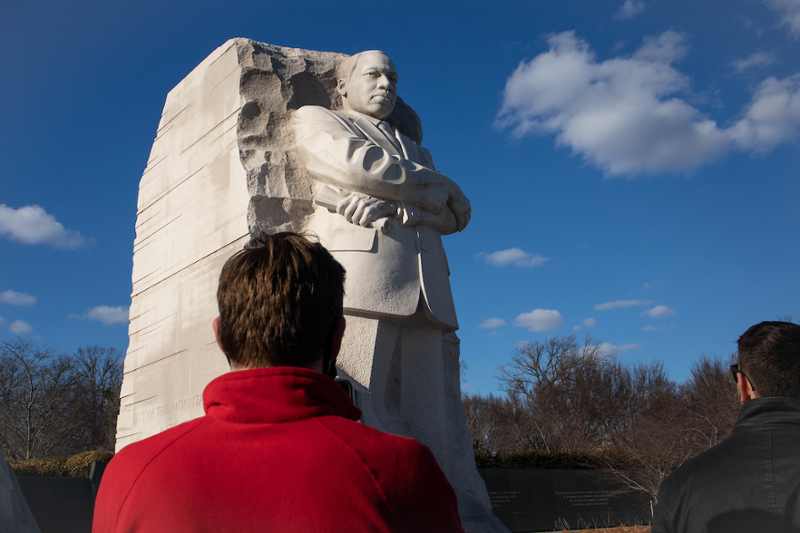The Spirit of the Olympics

When you hear the first few measures of Leo Arnaud's "Bugler's Dream" or John Williams' "Olympic Fanfare," what images pop into your mind? Chances are you picture a large arena electrified with bright colors, camera flashes, and that iconic music playing on repeat. One by one the world's nations file into the arena, led by an exuberant flag-bearer, who is followed by fellow athletes, coaches, trainers, and delegates. They are all dressed alike, waving small flags, and full of emotion. The opening ceremony is a moment for national pride.
Yet the Olympic Games are not about the opening ceremony. The games are comprised of sports, each one played with its own rulebook, requiring different competencies and skills. At the time of competition, the athletes are no longer grouped by nation. They scatter across the host country and reconvene in groups based on Olympic event. The Olympics produce a fascinating interplay between national pride and cross-cultural engagement. This is intentional.
An Avenue for Fully Formed Citizens
Although ancient in its origin, the modern Olympics were conceptualized by the French baron Pierre de Coubertin as a way of enacting France's humanistic values of liberty, equality, and fraternity. Through his studies in political science and education, as well as his extensive travel, Coubertin saw sport as an avenue for developing fully formed citizens and fostering peace between nations. Biographer Patrick Clastres noted Coubertin's work leveraged sport as a pathway to both patriotism and liberal pacifism. Today, the International Olympic Committee (IOC) upholds three key values of excellence, friendship, and respect and "seeks to create a way of life based on the joy found in effort, the educational value of good example and respect for universal fundamental ethical principles." In this way, the Olympic Games are meant to develop global citizens, but in a way that still honors and celebrates national identities. The games embody the idea that a fully formed citizen develops character and skill that helps them interact with others in a way that makes for peace. This idea is called the Olympic spirit.
The Olympic Spirit
The Olympic spirit enables an individual to compete with resolve and intense effort, while cultivating genuine respect for his fellow competitors. An athlete develops skill and cultivates her individual and national identity, but when she competes, the Olympic spirit means her individual performance is not the most important thing. In 1964, the IOC commissioned a medal to be awarded for special displays of this spirit. On the eve of the Tokyo Games, there have only been 19 recipients.
In 2016, Nikki Hamblin (New Zealand) and Abbey D'Agostino (USA), lined up for a preliminary heat of the women's 5000 meters. With less than 2000 meters to go, Hamblin tumbled and brought D'Agostino down on top of her. The race was all but over for both women as the pack passed them by. Recounting the incident in an interview, Hamblin said she remembers D'Agostino tapping her shoulder and saying, "It's the Olympics. We have to finish." Hamblin rose to her feet and the women started to run when D'Agostino faltered and fell again. It was now Hamblin's turn to turn back and help D'Agostino finish the race. The women said later they couldn't be disappointed because they felt they had been part of something much bigger. D'Agostino emphasized the importance of character when events are out of your control. Hamblin said she was so happy to have shared this moment with Abbey, who is "a fierce competitor, but also a wonderful human being." Because of their display of the Olympic spirit, Hamblin and D'Agostino were recipients 18 and 19 of the Coubertin Fair Play medal.
Hamblin and D'Agostino embodied Coubertin's vision that an international competition could cultivate and display excellence, friendship, and respect. The world was profoundly moved by their concern for one another and the women enjoyed instant fame, not because they won a race, but because they competed with the Olympic spirit.
Fully Formed Citizens from Where?
The Apostle Paul preceded Coubertin in his use of sport to convey a message about character. In 1 Corinthians 9, following a discussion about surrendering his rights for the advancement of the gospel, Paul turns to the image of a runner competing to win a prize. In fact, Paul uses this metaphor because he knows his audience is familiar with the Olympic games! He speaks of the intense preparation required for excellence. He addresses the resolve and focus needed to win the wreath. But then he pivots and speaks of an imperishable wreath. Paul writes in verses 25-29, "Every athlete exercises self-control in all things. They do it to receive a perishable wreath, but we an imperishable. So I do not run aimlessly; I do not box as one beating the air. But I discipline my body and keep it under control, lest after preaching to others I myself should be disqualified." Paul speaks of another race and another preparation embedded in the physical world we inhabit. Because of the gospel, Christians are aimed for, and representatives of, the Kingdom of God. Christians are running the physical race of life along with competitors from many other nations. They are scattered about and intermingling with the nations of the world. But the way in which a Christian runs this race of life is fundamentally different because they are becoming fully formed citizens of the Kingdom of God.
Surrendering Rights to Win the Prize
The entirety of 1 Corinthians 9 focuses on Paul's decision to surrender his rights in this physical world in order to serve the gospel. He surrenders the right to a wife, the right to an income from his ministry, the right to live freely outside of the constraints of Jewish law, the right to strength, and eventually the right to life itself. Paul is not checking out from life in the world. He fully intends to intermingle with unbelieving Jews and unbelieving Gentiles, so he might win some for the gospel. Paul marches into the arena behind Christ, but he disperses, along with his fellow countrymen, to run his race in the midst of the world. Jesus said that "all people will know [we] are his disciples, if [we] have love for one another" (John 13:35). Paul is, therefore, willing to surrender his rights so that he might demonstrate his love for others and through a demonstration of love, draw them into running for the Kingdom of God.
What Abbey Wrote on Her Hand
Prior to lining up at the starting line of the women's 5000-meter preliminary heat in Rio, Abbey D'Agostino had prepared herself. She was physically prepared to run. But she had also prepared her character. Abbey shared the following in an interview after her fateful race: "I remember having this solitary experience of preparing myself. There's a lot that we can't control. We don't know how the race is going to go. So for me, it was just surrender. I had a verse written on my hand, "Now to him who is able." Abbey represented the United States, but her instinct to immediately turn and help Nikki Hamblin spoke of another citizenship. Before she knew the extent of her injuries, Abbey sprang into action, surrendering to what the moment required, surrendering to a display of love.
Spectating with Purpose
As we gather with friends and family this July and tune in to the Olympic Games, we will enjoy the fanfare. We will watch the nations file into the arena to the sound of "Bugler's Dream." Then we will tune in to watch our favorite events when athletes disperse across Japan to run and swim, box, vault, fence, kick, lift, and cycle alongside representatives from other nations. As Christians who live in the midst of the world, we can also watch the games with Paul's words in 1 Corinthians 9 on our minds. We are a people called to live in the world as citizens of God's Kingdom. Coubertin desired for the Olympic Games to sow seeds of peace. As ambassadors of Christ (2 Cor. 5:20) and peacemakers (Matt. 5:9), may we be known for our willingness to surrender our rights to represent Christ and his gospel. Abbey and Nikki said they had no sadness or disappointment because of their fall. They had seized a bit of that imperishable wreath in an Olympic display of love.Mary Flickner is a guest contributor for the Institute for Global Engagement at Dallas Baptist University.






